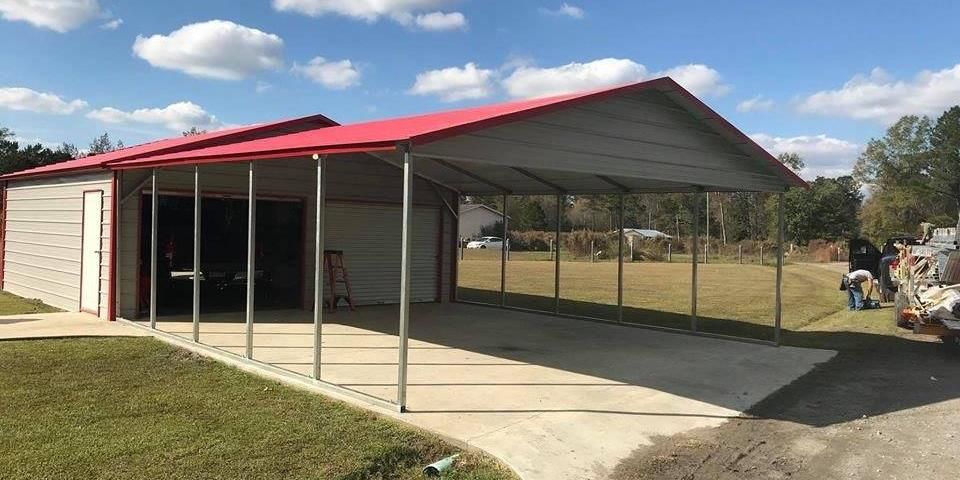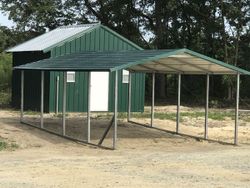
If your home doesn’t have a garage, a carport can be a convenient alternative for protecting your vehicle. These metal structures offer sturdy protection against the elements and provide a place to store lawn equipment and other tools. Here’s what you should know if you’re considering this installation for your property.
A Guide to Carports
How big should the carport be?
Most carports range in width from 12 to 30 feet. The wider the carport, the greater its center brace clearance and peak height will be. If you store two vehicles, you should plan for a carport that’s at least 20 feet wide.
What type of site prep is needed?
 The area where the carport will be installed should be leveled and cleared of all debris before the installation day. While carports can be anchored to the soil, many homeowners prefer to lay a concrete slab to help the structure feel more like a garage. In this case, wedge anchors will be used during installation rather than rebar anchors.
The area where the carport will be installed should be leveled and cleared of all debris before the installation day. While carports can be anchored to the soil, many homeowners prefer to lay a concrete slab to help the structure feel more like a garage. In this case, wedge anchors will be used during installation rather than rebar anchors.
How long does it take to build a carport?
Because the metal parts for a carport are pre-manufactured, installation proceeds quickly once materials arrive. Larger carports may require a few days to put together, while smaller versions can be completed in a matter of hours.
What do steel leg gauge ratings mean?
Galvanized steel legs providing the framework and structural integrity for the carport. The standard gauge size is 14. Lower gauges (such as 12) are thicker and tend to have higher snow and wind resistance ratings. Price and warranty coverage may vary between gauge ratings.
For carports and other high-quality structures, turn to New Horizon Buildings and Concrete, LLC, in Franklinville, NC. Serving North Carolina residents for over 20 years, this family-owned and -operated metal building contractor handles everything from design to installation to ensure that you get great results for your property. To learn more about their services or to request a free quote, visit them online or call (336) 799-1106.
About the Business
Have a question? Ask the experts!
Send your question

